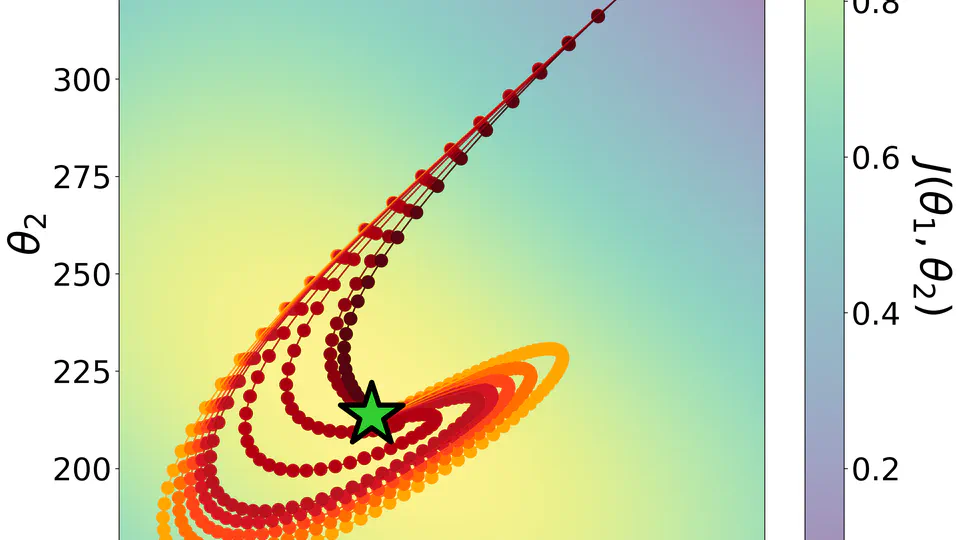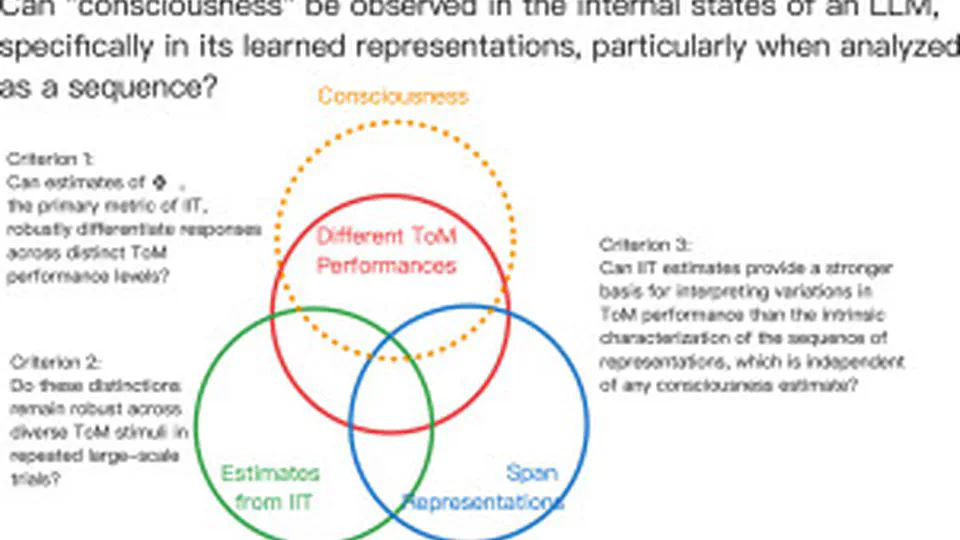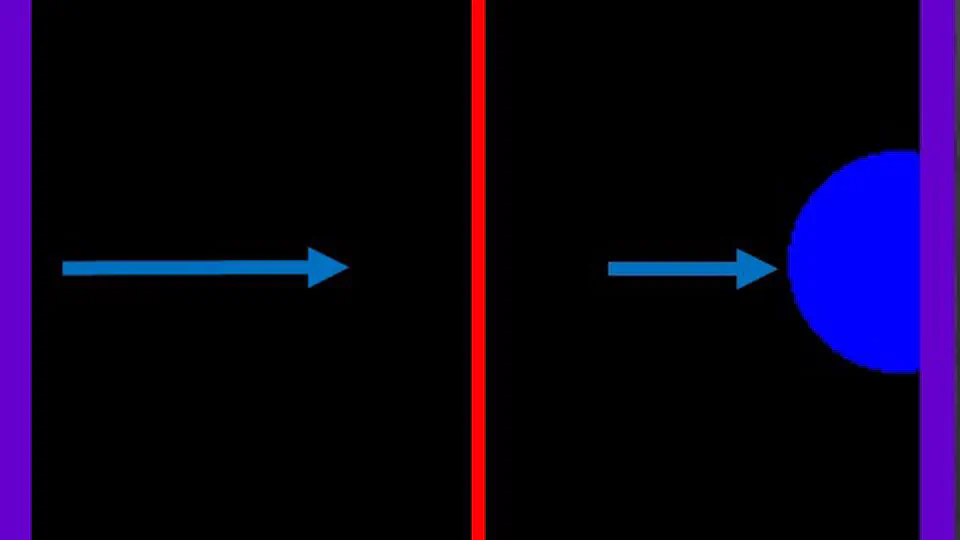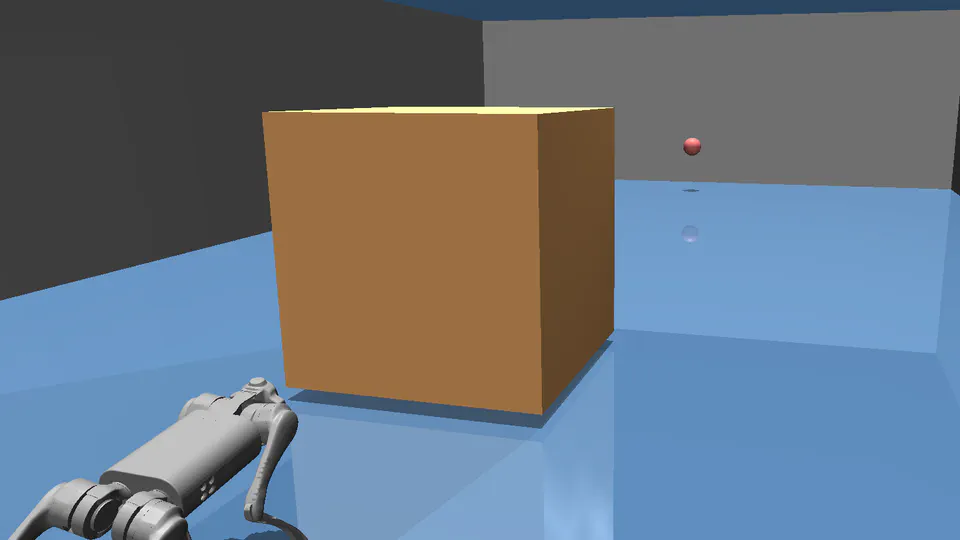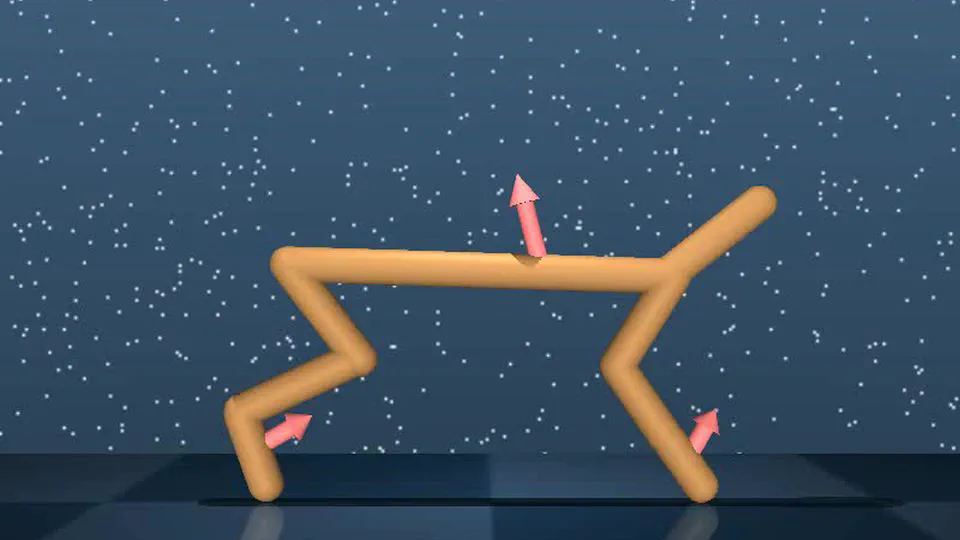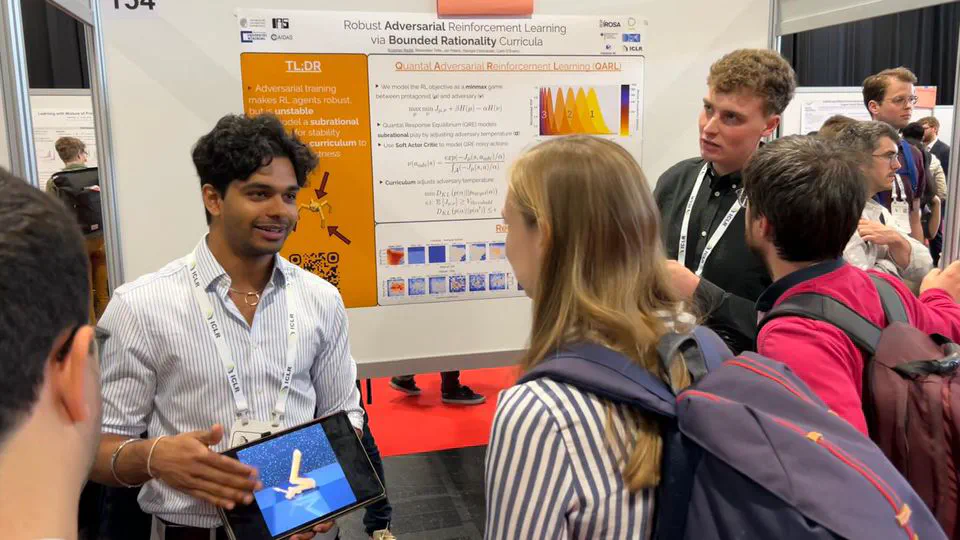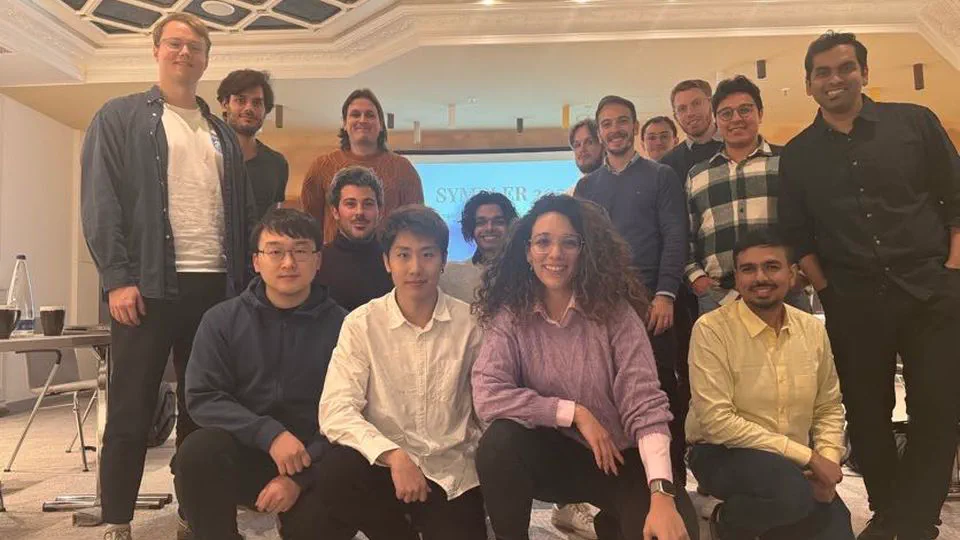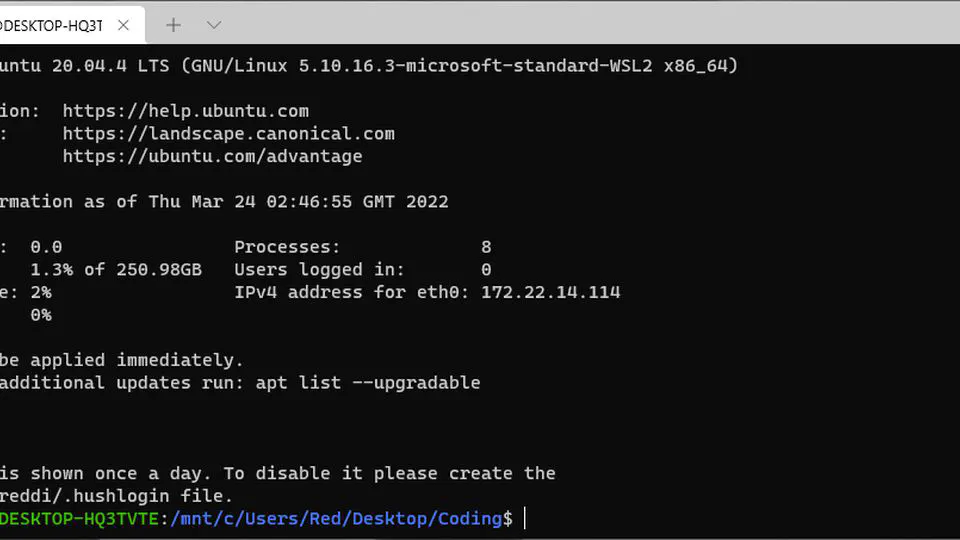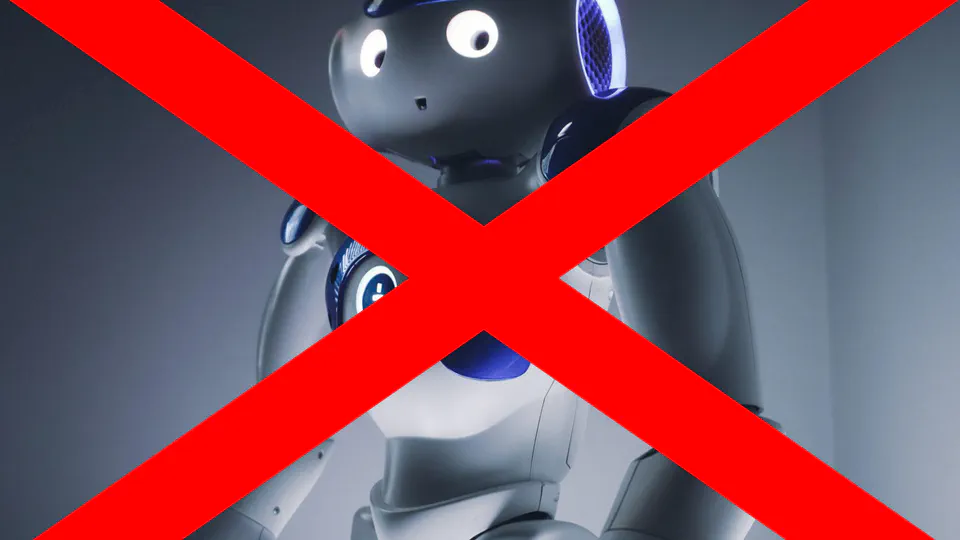About Me
I am a PhD student in reinforcement learning at the LiteRL group at the Technical University of Darmstadt in partnership with the Intelligent Autonomous Systems lab and Hessian.AI, supervised by Professor Carlo D’Eramo 🎓
I am interested in developing sample-efficient techniques in deep multi-agent reinforcement learning using insights from applied mathematics and game theory 🕹️
I am a continuum hypothesis skeptic, a mereological universalist, and a Collatz conjecture supporter.
- Reinforcement Learning
- Game Theory
- Ethics and Philosophy
PhD in Computer Science
Technical University of Darmstadt, Germany
MEng & BA in Information and Computer Engineering
University of Cambridge, United Kingdom
Experience
Machine Learning Research Engineer
Arm, Cambridge, United Kingdom- Developed an open-source tool (ML Inference Advisor) to optimise neural networks for inference on Arm GPUs using Python (PyTorch, Tensorflow, Numpy, Jupyter, Pandas), C++, Kubernetes, & Docker.
- Achieved a 20% boost in GPU inference throughput by analyzing TensorFlow operator efficiency using deep learning clustering and pruning techniques
- Enhanced IoT device performance by 12% by benchmarking over 30 silicon-on-chip devices using Python, Jenkins CI, SQL, & Kubernetes
Education
PhD in Computer Science
Technical University of Darmstadt, GermanyMy focus is on developing sample-efficient algorithms for exploration, coordination, and communication in multi-agent reinforcement learning using insights from applied mathematics and game theory.
I believe bridging the gap between practical deep learning and theoretical models of stochastic optimisation is essential for scaling RL in real-world settings.
I build algorithms which exhibit high performance in high-dimensional environments while providing mathematical insights using probability theory, linear algebra, calculus, & functional analysis.
MEng & BA in Information and Computer Engineering
University of Cambridge, United KingdomRead Thesis- Grade: Distinction (GPA 4.0 Equivalent)
- Received the David Thompson prize for academic achievement
Communities
- I am a teaching assistant for the Reinforcement Learning course at TU Darmstadt 🤖
- Former Secretary of the Cambridge University Libertas Society, Cambridge’s first free speech society ✒️
Interesting links
- Don’t ask to ask, just ask
- The XY Problem
- The Life of Jos Claerbout
- The Worst Rob Liefeld Drawings (the funniest article ever written)
Contact
✉️ aryaman{}reddi{}tu-darmstadt.de
📍 E327, S2|02 Robert-Piloty-Gebäude, Technical University of Darmstadt, Darmstadt 64289
